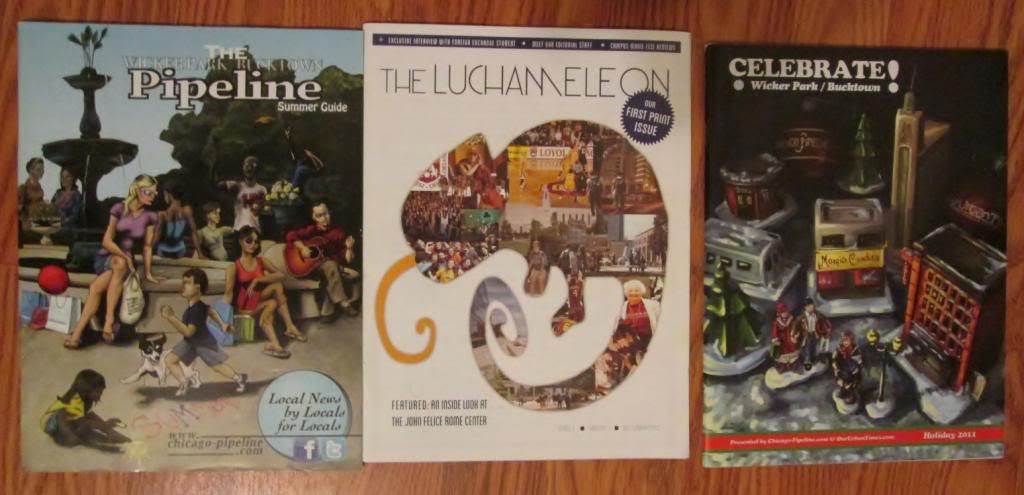"Online publications see a future in print"

A couple of weeks ago, Jacket Copy, the Los Angeles Times' "books, authors and all things bookish" blog, did a piece on an interesting trend that I've noticed over the past few months. Online-only news sources, whether it's Pitchfork, Politico or even LA Times' own Los Angeles Review of Books, are publishing magazines. As in actual print magazines you can hold in your hand.
The post talked about the reasons why the company did it - nostalgia, a more permanent medium than a bunch of code, the desire to present stories in a format that's more conductive to longer readers. But it also touched on something that may surprise people who aren't working in the media.
[There] also may be shrewd business logic in some cases. Samir Husni, director of the Magazine Innovation Center at the University of Mississippi, says he's seeing "more and more" online-only sites coming to print, but he believes it's for financial reasons, not nostalgia.
"It's not that people love print," Husni says, it's that "they discover that there's still a lot of money to be made in print while they're searching for where money can be made online."
Husni believes that's because print is the only place ads aren't ignored: "Online and in apps and on the digital frontier, we've all discovered ways to skip the ad. But in print... People buy the magazines as much for the ads as for the content."
Tom Lutz, 60, editor in chief of the L.A. Review of Books, says he started the literary site on Tumblr rather than as a paper magazine because "it takes more upfront capital to do print than it does to do the Web." But the Review found funding for digital-only advertising harder to come by.
"The people that we've approached for sponsorships have been much more interested in getting recognized in our print publication than they are on the Web," Lutz says. "There are more eyes on the Web than there are on the print publications, they go wider, they go farther, but there's no question we've found it easier to sell advertising in print than on the Web."
One of the things a lot of people who don't work in the media don't realize is that, even print newspapers and magazines see online revenue shrink, advertising in print is still more profitable than advertizing online. Making profit online is HARD. Earning the kind of money print advertising brings in is even harder. That's part of the reason why Wrapports, for its talk about being digital-first, launched Splash and the Grid in hopes of attracting more high-end advertising and the more expensive magazine advertising, respectively. And it's probably why Shaw Media launched Suburban Life Magazine soon after it acquired Suburban Life newspapers. The strategy doesn't always pay off - Wrapports stopped publishing the print version of the Grid back in October. But I can see why publishing companies do it.
Here's the thing. If advertising online was as profitable as advertising in print, we'd see a lot more newspapers going online-only. Putting together a website is cheaper than printing a newspaper, and the difference is only going to become more pronounced as printing costs rise. But we don't have that. Even Advance Publications, which has been particularly aggressive about cutting their print newspapers and expanding into digital, seem to be gambling on the possibility that they can stem the losses now and earn more profits from their digital side further down the line.
But I digress.
To, as we Russians say, return to our sheep, the online media outlets Jacket Copy discusses aren't trying to publish a daily (or even weekly) newspaper. They're trying to publish magazines that will come out a month, or once every few months. And, unlike a brand-new magazines, they have strong brands that have been around for a long time to capitalize on.
Besides, starting magazine may actually make sense in the current economy. The readership is increasing - both in print and online. And magazines trying to get off the ground are more likely to succeed.
Of course, only time will tell how well those magazines will do on the long run. Even in the best economic conditions, not every magazine succeeds. And there are far from the best economic conditions for printed periodicals. But for now, at least, I'm cautiously optimistic.